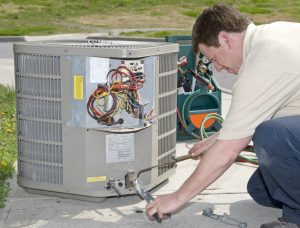 Our summers may not be as hot and as long as other parts of the country, but that doesn’t mean they don’t pack a punch. For days on end, we’ve been using our air conditioners on a consistent basis, relying on it to get through every little heat wave we’ve had. Hopefully, you’ve gotten through the summer so far without any unexpected problems, but that doesn’t mean that you won’t have to call for an AC repair in Tacoma, WA before summer ends.
Our summers may not be as hot and as long as other parts of the country, but that doesn’t mean they don’t pack a punch. For days on end, we’ve been using our air conditioners on a consistent basis, relying on it to get through every little heat wave we’ve had. Hopefully, you’ve gotten through the summer so far without any unexpected problems, but that doesn’t mean that you won’t have to call for an AC repair in Tacoma, WA before summer ends.
Fortunately, most cooling system repair issues show signs well before they force the system to break down, giving you plenty of time to give us a call. On that note, please never try to formally diagnose or repair a faulty air conditioner yourself. We say this because your air conditioner contains potentially dangerous components, such as refrigerant, and handling these components requires years of training, experience, and education. You can, however, spot the signs you need repair. Below are just a few of these signs you can watch out for.
Decreased Airflow
Air that’s not moving through the vents with the speed you expect can be a big problem. It typically means cold air is trapped within the system. This can cause coils to freeze and create other problematic symptoms. Even if this doesn’t occur, reduced airflow means your air conditioner is working harder than it should in order to cool your home—raising stress on the system and increasing your utility bills.
Low Cooling Output
Low refrigerant, damaged ductwork, and overheating components are each and all something that can reduce your system’s ability to cool the air. You can detect this problem simply by noting if the air coming out of your vents is warmer than you’d expect, no matter how powerfully it’s coming out. This problem is similar to the above-mentioned decreased airflow in the sense it causes a lot of strain on your cooling system.
Short-Cycling
This is the name given to the process in which your compressor turns on and shuts off in rapid succession. Your air conditioning system uses more energy turning on and off than simply running. So, you want yours to run for at least 15 minutes at a time. Otherwise, it’s typically a sign something is amiss.
Strange Noises
A strange sound can mean anything, really—hums, moans, buzzes, clanging—anything that doesn’t match the normal sounds your system makes while it’s operating. These noises typically start and stop in time with the starting and stopping of the air conditioner itself.
Higher Utility Bills
Sometimes, an AC problem won’t actually show any overt signs. However, it can translate into excess energy being consumed. Such is the case with higher energy bills. Unless you’re using your air conditioner a lot more than you did last year, or energy costs went up in your neighborhood, you shouldn’t see too big of a spike compared to this time last year. It’s best to at least call for an inspection if this is the case.
